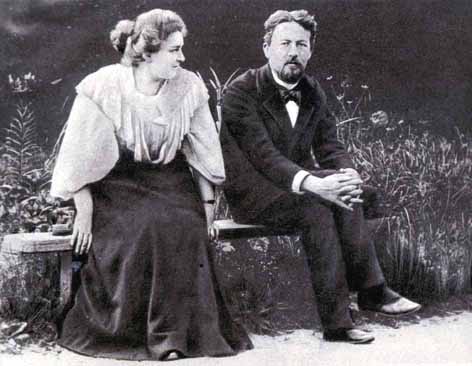On 29th January, 1860, somewhere in southern Russia, in the city of Taganrog by the quiet port of the Sea of Azov, the winter’s snowfall, as usual, was miserably falling. Almost every tree appeared as if they were painted with snow. And in one of the snow-wrapped houses, behind the walls that held the scent of dried fish and kerosene, a genius came into the world. His name was Anton Pavlovich Chekhov.
Born the third of six children, Chekhov grew up in a house soaked in the smell of tea leaves and piety. His father, once a serf and later a grocer, ruled with a kind of religious authority. He made the children sing in the church choir and follow faith with a strictness that often turned into tyranny. When the shop failed, debt clung to them like a shadow. The family fled to Moscow, leaving sixteen-year-old Anton behind in Taganrog to finish school alone.
That solitude etched something into him: a quiet patience, a way of listening not just to voices but to silences. He once said that when people speak of others, they’re often revealing themselves. That quiet perceptiveness, that ability to read between the lines, would later become the heart of his stories.
Fourth Environment Literary Symposium held in UK

In Moscow, Chekhov studied medicine and remained a doctor for the rest of his life. But writing was what truly gave him joy. He began with short comic pieces in newspapers, often under pseudonyms. These were clever, fast, and written more out of necessity than passion. Even in his humorous pieces, a trace of melancholy lingered. His family needed money, and writing was his way of helping them survive.
But over time, something shifted. The humor softened into stillness. The stories began to slow down and turn inward. His characters became people who waited, who dreamed but did not act. They were teachers, widows, clerks, and landlords. They longed for something they could not name. Chekhov did not judge them or offer answers. He simply let them exist, for they truly did exist in reality.
By the early 1890s, his tone had changed. Illness, exhaustion, and disappointment had begun to shape his work. He had contracted tuberculosis. His travels through Russia brought him face to face with the lives of the poor, the sick, and the forgotten. In stories like Ward No. 6, he wrote with a new kind of coldness. It was not cruel but honest. For Chekhov, suffering was not an idea. It was something real, something people lived with every day.
His plays followed this same quiet path. In The Seagull, Uncle Vanya, Three Sisters, and The Cherry Orchard, nothing much happens. People sit over tea. They talk about what they have lost and what they hope might still come. Outside their windows, Russia was changing. Industry was growing. Political unrest was building. But inside Chekhov’s world, people remained stuck. They were trapped in their thoughts, in their emotions, in their pasts. Chekhov believed that the role of an artist was not to provide answers but to ask questions clearly.
In 1898, when illness had already begun to take its toll, Chekhov met Olga Knipper. She was a young actress full of energy, confidence, and light. She was thirteen years younger, but their bond felt natural and equal. They married in 1901. Although their work often kept them apart, their love did not suffer from the distance. It was a love built on trust, understanding, and freedom. Where Chekhov was calm and introspective, Olga was lively and expressive. She brought joy into his fading days. Through her letters and presence, she gave him a sense of closeness even when they were far apart.
In her, he found not only affection but companionship. Their love did not try to fill some missing piece. It simply honored what was already there. It was grown-up, forgiving, and quiet. In his final years in Yalta, where he moved in hopes of easing his illness, his health worsened but his writing deepened. Stories like The Lady with the Dog became more tender and more restrained. He wrote as though every breath mattered, as though each sentence had passed through his tired lungs before reaching the page.
In July 1904, while staying at a health resort in Germany, Anton Chekhov died. He was forty-four years old. His last request was for a glass of champagne.






































